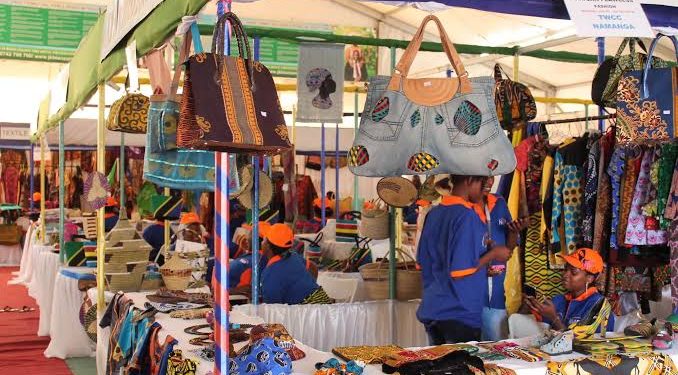Exhibitors at the ongoing Food and Beverage West Africa 2025 Conference in Lagos have urged the Federal Government to expand its support for indigenous manufacturers to help them scale production and play a more significant role in Nigeria’s industrialisation agenda.
At the event—touted as Africa’s largest gathering for the food and beverage sector—speakers highlighted the country’s strategic location, population size, and growing market potential as key attractions for international companies. They argued that Nigeria is increasingly being viewed as a frontier market, drawing foreign manufacturers and distributors keen to understand local product needs and penetrate distribution networks.
The exhibition, which features over 350 international firms from more than 50 countries and has attracted over 6,000 participants, is not only serving as a platform for product showcases but also for sealing trade deals and fostering investment relationships with Nigerian businesses.
Brad Smith, the Exhibition Manager, said the show has become a catalyst for innovation and cross-border partnerships. He explained that companies are using the platform to gain market insights, validate investment decisions, and ensure regulatory compliance, particularly with standards set by agencies like NAFDAC.
Smith also called on the Federal Government to deepen its engagement with the exhibition by creating more avenues for local firms to display their products to international buyers. “Boosting the economy of Nigeria depends on several factors, one of which is developing and producing new products. Through this exhibition, we’ve consistently connected manufacturers with opportunities for growth, market feedback, and strategic partnerships,” he said.
He emphasised the potential of such conferences to serve as engines for economic development by uniting manufacturers, distributors, investors, and consumers in a single ecosystem.
Echoing these sentiments, Immanuel Linggal, an exhibitor from Indonesia, described Nigeria as an enormous market with vast partnership opportunities. He noted that Indonesian firms are actively seeking joint ventures with Nigerian businesses to expand market access and deepen their presence across Africa.
From India, Chrajit Pakrasi of Venus Processing and Packaging spoke about the firm’s interest in Nigeria’s agricultural value chain, particularly in connecting organic farmers with consumers through packaged products. The conference, he said, offers a critical window to showcase innovations and build bridges between producers and buyers.
Also present was Seun Ayegbusi, CEO of Klak, a financial technology firm participating to provide solutions that streamline payments across borders. He stressed the importance of reliable fintech infrastructure to manage large transactions during exhibitions, ensuring efficient business processes and cross-border payment flows.
According to Statista, the West African food and beverage market is valued at $325.84 billion and is projected to grow at an annual rate of 9.89 per cent between 2025 and 2030. Nigeria’s food services segment alone was worth $6.2 billion in 2024 and is expected to reach $11.4 billion by 2033.
Despite being Africa’s fastest-growing economy—with a projected annual GDP growth rate of 4.2 per cent between 2016 and 2050—Nigeria continues to rely heavily on food and beverage imports. Government efforts to boost local production have made some progress, but the gap remains significant. In the first quarter of 2024, food imports accounted for approximately 12.59 per cent of Nigeria’s ₦12.64 trillion total import bill.
With the country’s population projected to double over the next three decades and a rapidly expanding working-age demographic, industry players believe that empowering local manufacturers could unlock unprecedented economic growth.
They are calling for greater government incentives, regulatory support, and participation in platforms like the Food and Beverage West Africa Conference to position Nigeria as a leading manufacturing hub—not just for local consumption but for export across the continent and beyond










